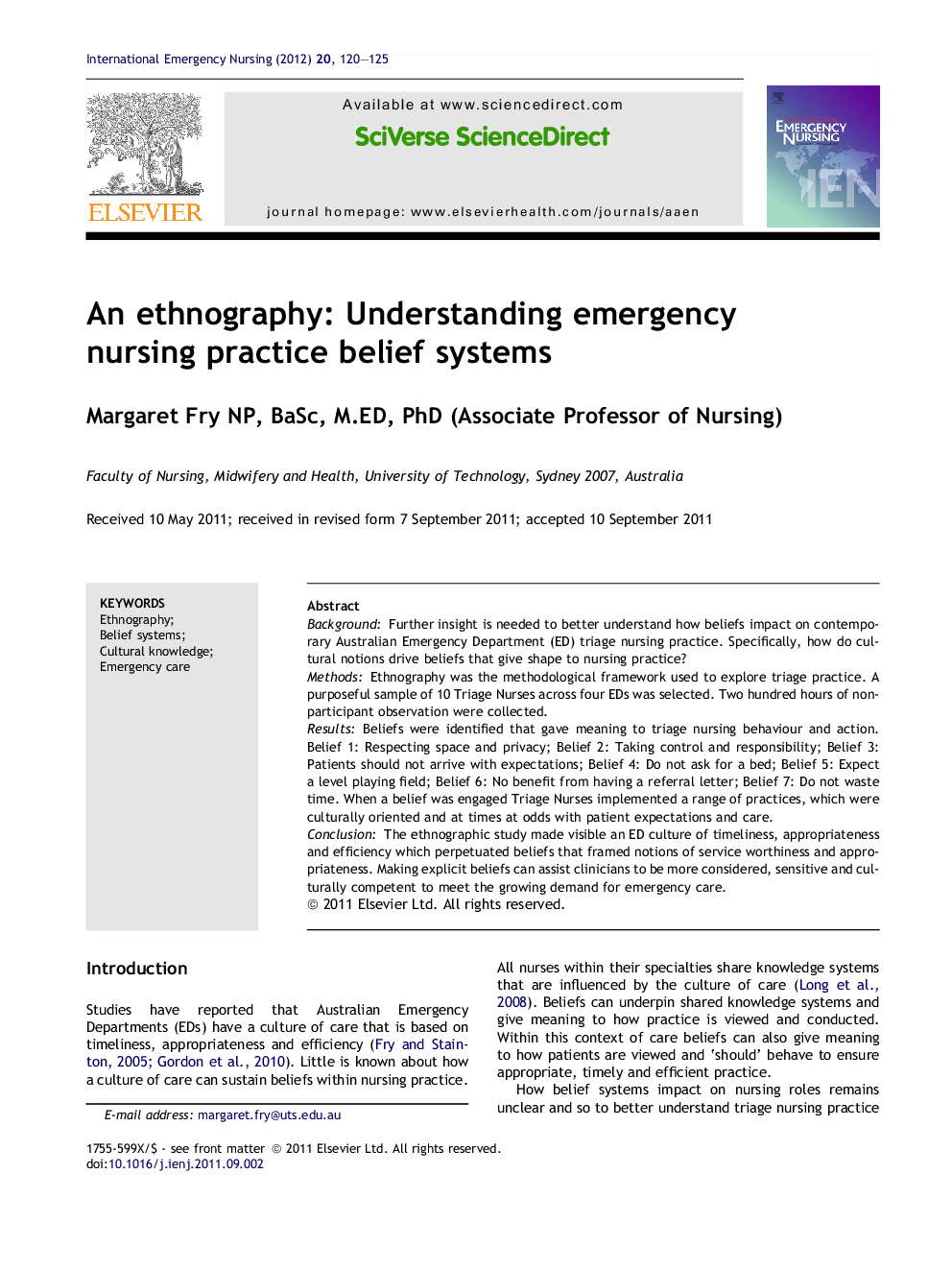| Article ID | Journal | Published Year | Pages | File Type |
|---|---|---|---|---|
| 2609588 | International Emergency Nursing | 2012 | 6 Pages |
BackgroundFurther insight is needed to better understand how beliefs impact on contemporary Australian Emergency Department (ED) triage nursing practice. Specifically, how do cultural notions drive beliefs that give shape to nursing practice?MethodsEthnography was the methodological framework used to explore triage practice. A purposeful sample of 10 Triage Nurses across four EDs was selected. Two hundred hours of nonparticipant observation were collected.ResultsBeliefs were identified that gave meaning to triage nursing behaviour and action. Belief 1: Respecting space and privacy; Belief 2: Taking control and responsibility; Belief 3: Patients should not arrive with expectations; Belief 4: Do not ask for a bed; Belief 5: Expect a level playing field; Belief 6: No benefit from having a referral letter; Belief 7: Do not waste time. When a belief was engaged Triage Nurses implemented a range of practices, which were culturally oriented and at times at odds with patient expectations and care.ConclusionThe ethnographic study made visible an ED culture of timeliness, appropriateness and efficiency which perpetuated beliefs that framed notions of service worthiness and appropriateness. Making explicit beliefs can assist clinicians to be more considered, sensitive and culturally competent to meet the growing demand for emergency care.
